Student used pencils to stab Kelan Jordan in the arm after an argument
Surveillance video shows 12-year-old Kelan Jordan being attacked by another student at Daybreak Middle School in Battle Ground. Video courtesy Karah Jordan
BATTLE GROUND — The mother of a Battle Ground middle school student is angry after she says the district failed to protect her son following an attack by another student.
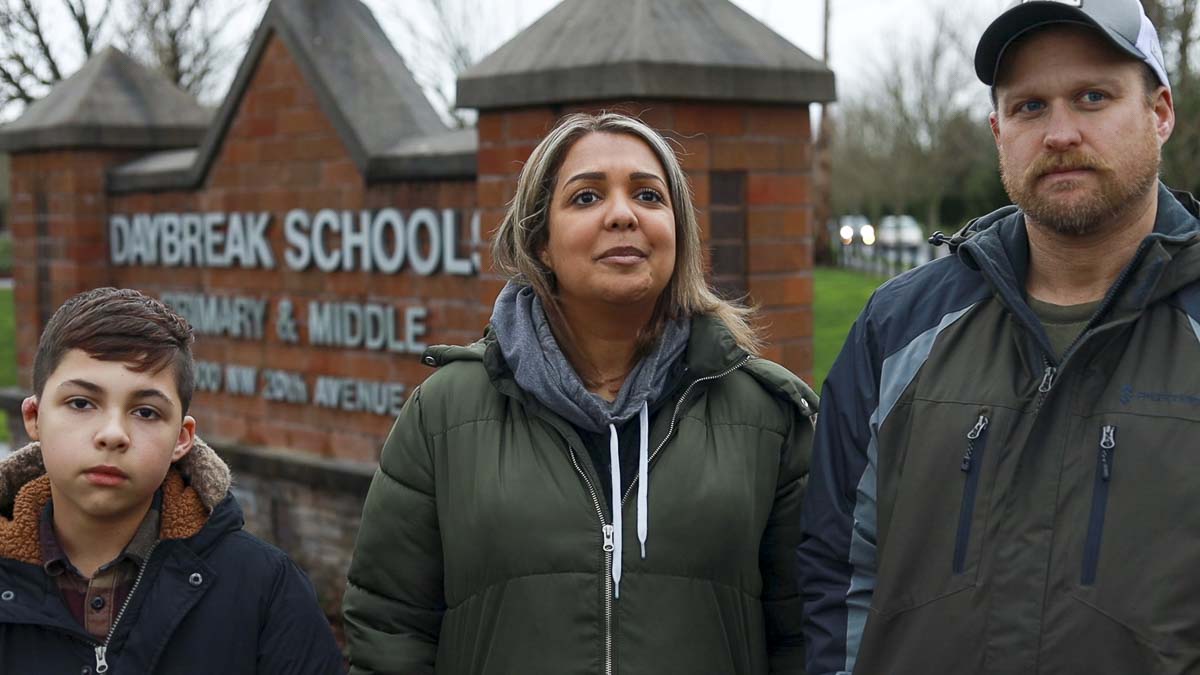
Karah Jordan says her 12-year-old son Kelan ended up with pencil tips lodged in his right arm after the attack that happened near the end of the school day at Daybreak Middle School on Jan. 16.
According to Kelan, the attack happened following a disagreement during a game in which he was pretending to write on another student with a marker. Another student confronted him, then left a mark on his shirt, despite being told it was a game.
“He got mad, and then after class he just stabbed me,” Kelan told ClarkCountyToday.com.
Surveillance camera footage obtained by Battle Ground Police as part of an assault investigation, and shared with Clark County Today, shows Kelan being followed around in a hallway by the other student. Kelan says he was trying to keep tables and chairs in-between himself and the aggressor, but at some point the other student caught up, throwing a punch and then stabbing Kelan in his left arm with two pencils before running away.
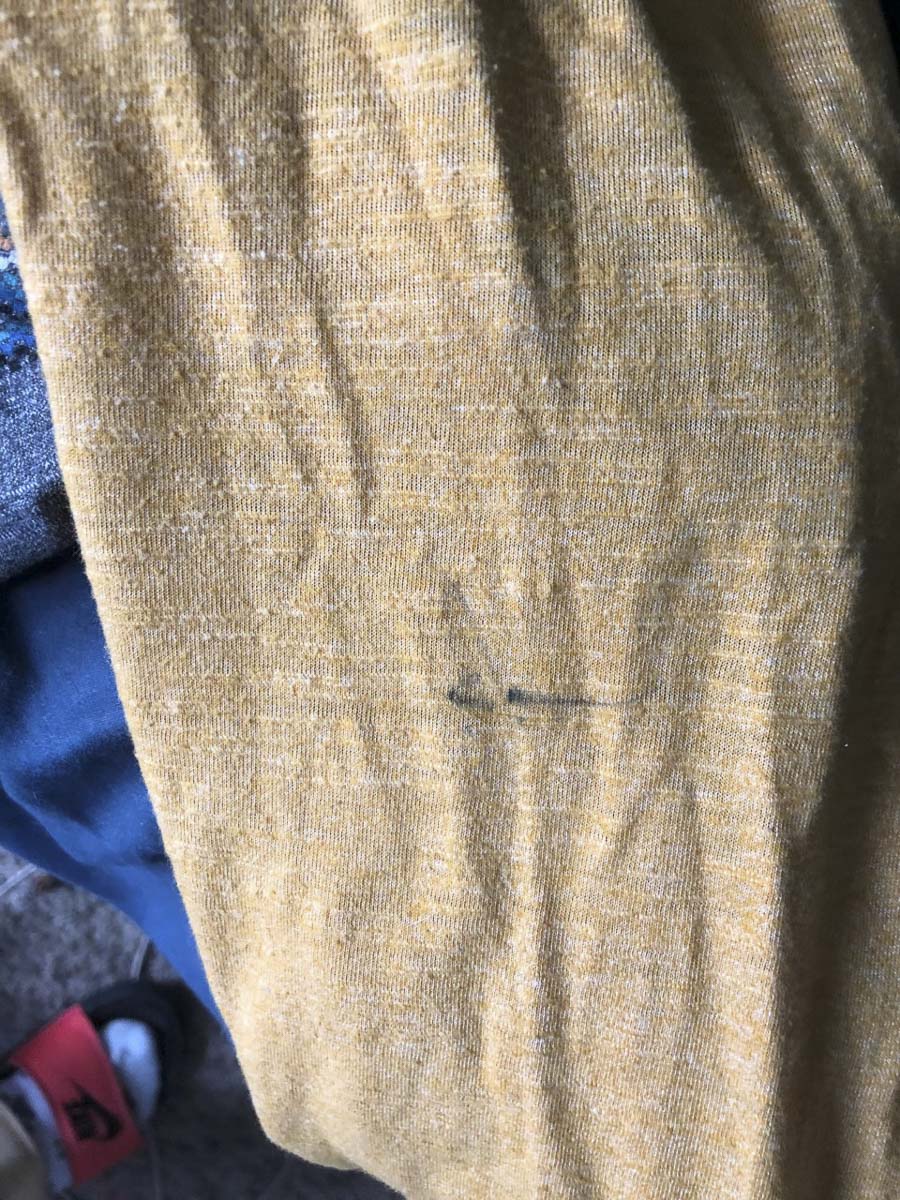
A teacher can be seen coming into the hallways shortly after the confrontation, but appeared not to be aware of the confrontation.
Kelan says he didn’t tell any adults at the school after the attack, but told his dad when he got home. After Karah got home, she says they went to Kelan’s doctor, who said he had graphite lodged in his arm. She was able to get a small piece out, but would have had to numb the area to remove the rest, which Kelan declined to have done.
“She said that we’ll just wait until it makes its way out,” says mom.
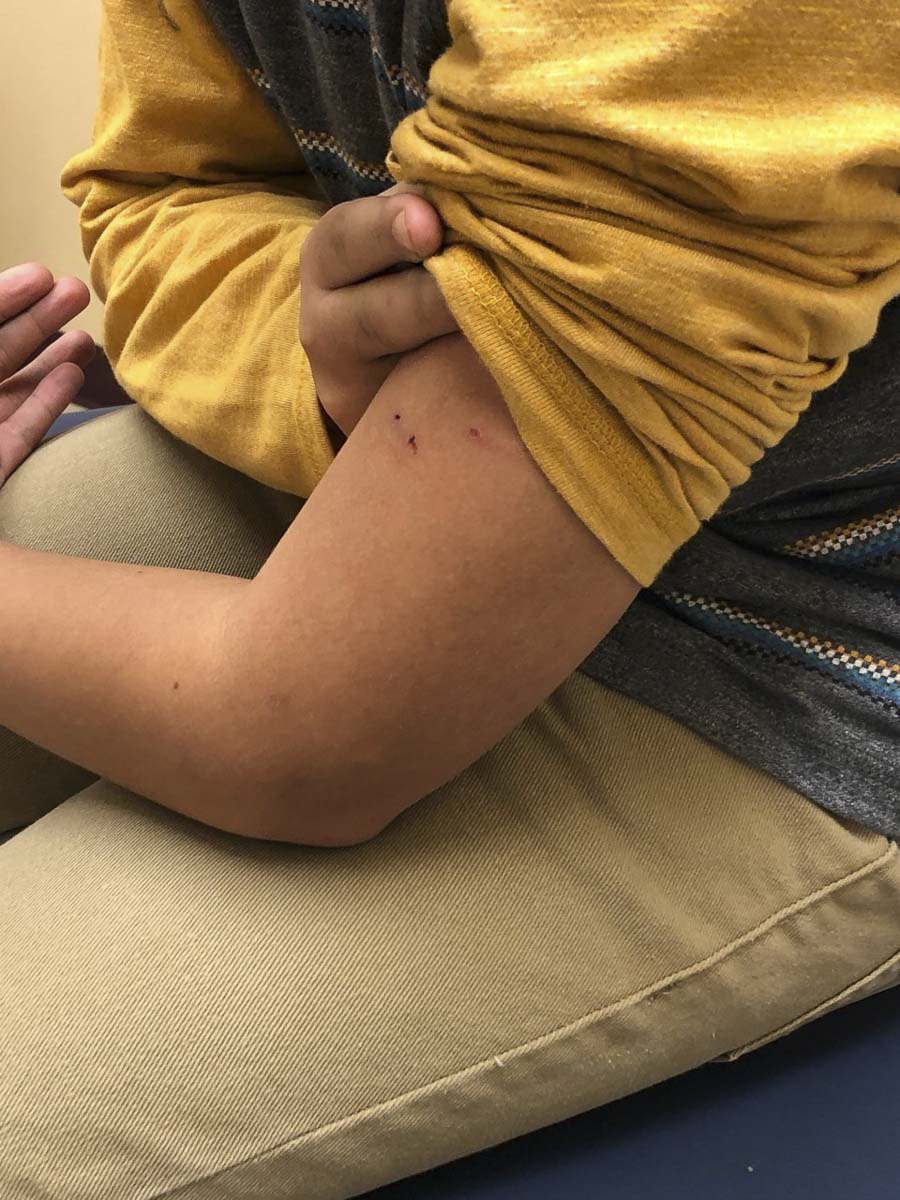
Karah, who works for the Battle Ground School District, says Kelan didn’t sleep that night, and she decided to keep him home the next day. Then, she called Daybreak Middle School Principal Kevin Palena on Friday to discuss the situation.
Palena, she says, agreed that the situation had gotten out of hand, and gave Karah the name of the School Resource Officer for Battle Ground schools. The district also handed over surveillance footage during the police investigation.
Karah says she was told the school would be issuing a no contact order for the student who attacked her son, so she fully expected that when Kelan went back to school the Tuesday following MLK Day, that he would be safe.
“Then he called us at recess and said ‘he’s here,’” she says.
Kelan said the other student didn’t say anything to him, but stood staring at him from a short distance in the cafeteria. Karah says she came to the school to pick Kelan up early, and he didn’t return to school the rest of that week.
In a meeting with district officials later that week, Karah says she was told the student who attacked her son is classified as special needs, and thus could not be suspended or expelled over the attack. They also could not be told what disciplinary action, if any, had been taken, beyond the no contact order, due to privacy laws.
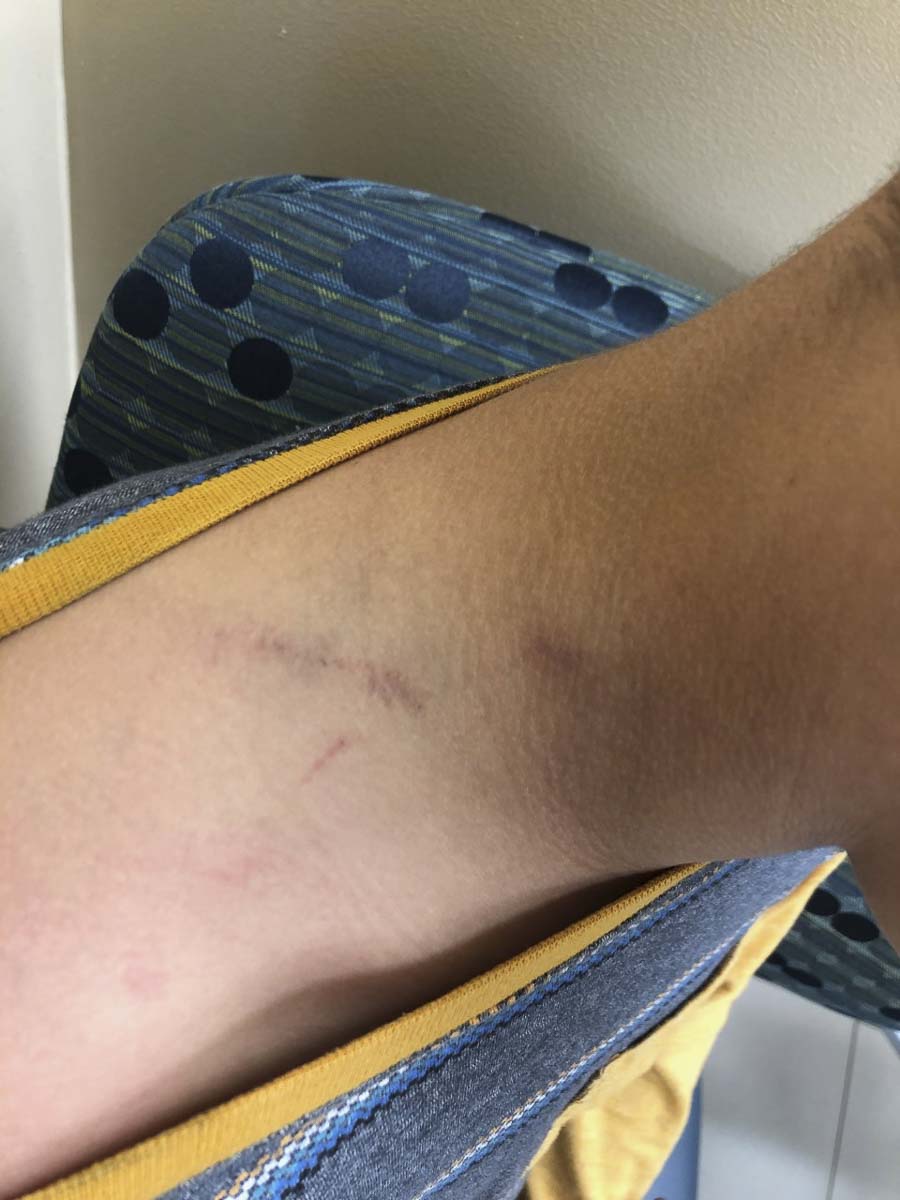
Kelan is also classified as special needs, due to a deformity and deafness in his right ear. But Karah says the district’s first solution, after the no contact order apparently failed to work, was to request she change Kelan’s class schedule.
“At the end of the school year they told us they couldn’t put him in smaller class sizes because they couldn’t change his schedule,” she says, shaking her head. “And then, they’re asking us to change his schedule after he was a victim.”
Kelan had gone to Pleasant Valley Middle School until this year, when the district’s moves to redraw boundaries sent them farther north to the less crowded Daybreak campus. Ultimately, the district offered to let Kelan go back to Pleasant Valley, which he gladly accepted.
In a statement provided by the district, they said Federal privacy laws prevent them from discussing information about specific students.
“Our practices for handling inappropriate behaviors and discipline depend on many factors, including whether the behavior was provoked, is there a pattern of inappropriate behavior, and the severity of an incident,” the statement reads. “One of Battle Ground’s top priorities is to provide a safe and supportive environment for all students. We work with families to provide supports, and in some cases make accommodations and develop individual plans, to provide for the well-being and a positive experience for students.”
Karah, and her husband Dan, aren’t disputing that the district has worked hard in an attempt to find a solution that works. But if state or federal law prevents a student with special needs, and a history of aggressive behavior, from being kept out of class, Karah says, then the same laws are preventing her special needs child from feeling safe at school.
“When I was growing up and going to school, had someone done this they would have gotten suspended or expelled,” Karah says. “And for my child not to feel safe at school? That’s a problem.”
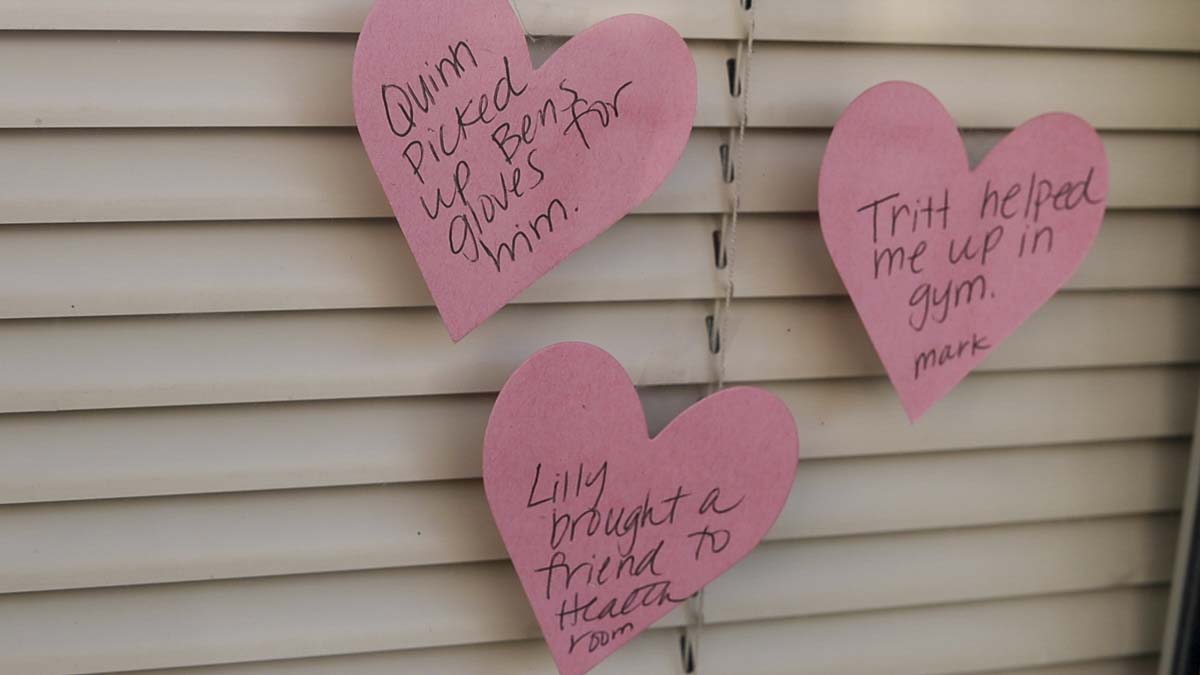
Battle Ground School District uses a system known as Positive Behavioral Interventions and Supports (PBIS), says district spokesperson Rita Sanders, which teaches students what behaviors are expected and appropriate in school.
“Students are taught expected behaviors and reminded of them throughout the year, much the same way they are taught academics,” said Sanders in an email. “Students receive positive reinforcement, such as school-wide dress up days, for demonstrating positive behavior.”
PBIS provides what the district describes as a tiered approach to address inappropriate behavior, from warnings and problem-solving sessions, to notifying parents. Repeated behavior can lead to a daily check in/check out, which requires students to “discuss their day and problem solve with a caring adult.”
The student who attacked Kelan is facing a fourth-degree assault charge in juvenile court, and had to appear in court recently as a judge issued a full no-contact order.
“Maybe this punishment right here will prevent him from getting worse,” said Dan Jordan.
Mom says she thinks her son did the right thing, walking away and seeking help. Kelan says he’d give the same advice to any other student facing the same situation.
“I’d tell them to run, tell somebody,” he says. “Tell an adult.”
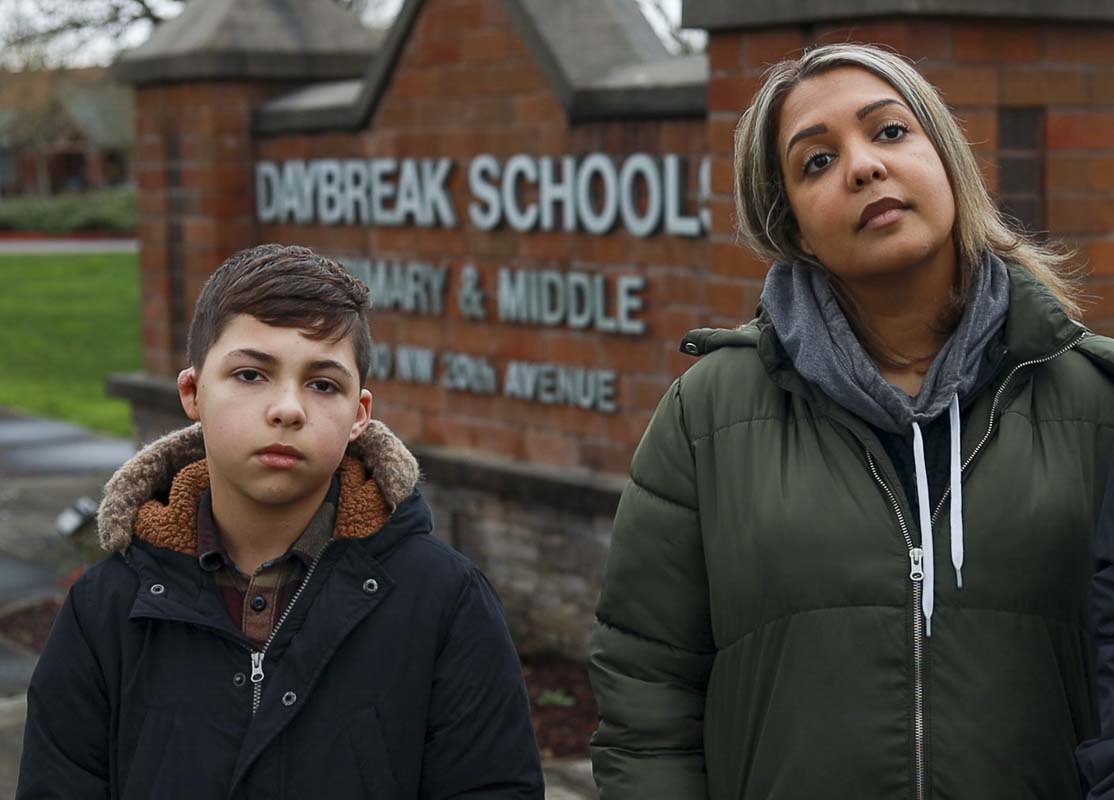
While Washington state has laws designed to prevent bullying, the Individuals with Disabilities Education Act, adopted in 2006, provides certain protections for students with special needs. Karah says the difficulty in this case is that it’s unclear if the special need designation for the student who stabbed Kelan relates to his aggressive behavior, which previously included punching another student during a dispute.
“The plan is to go state level, to find out why these laws are protecting students when they do something bad,” says Karah. “Because, had it not been a student who is special needs, they would have gotten suspended or expelled.”




